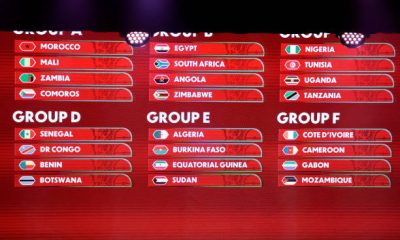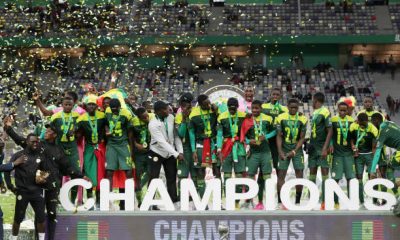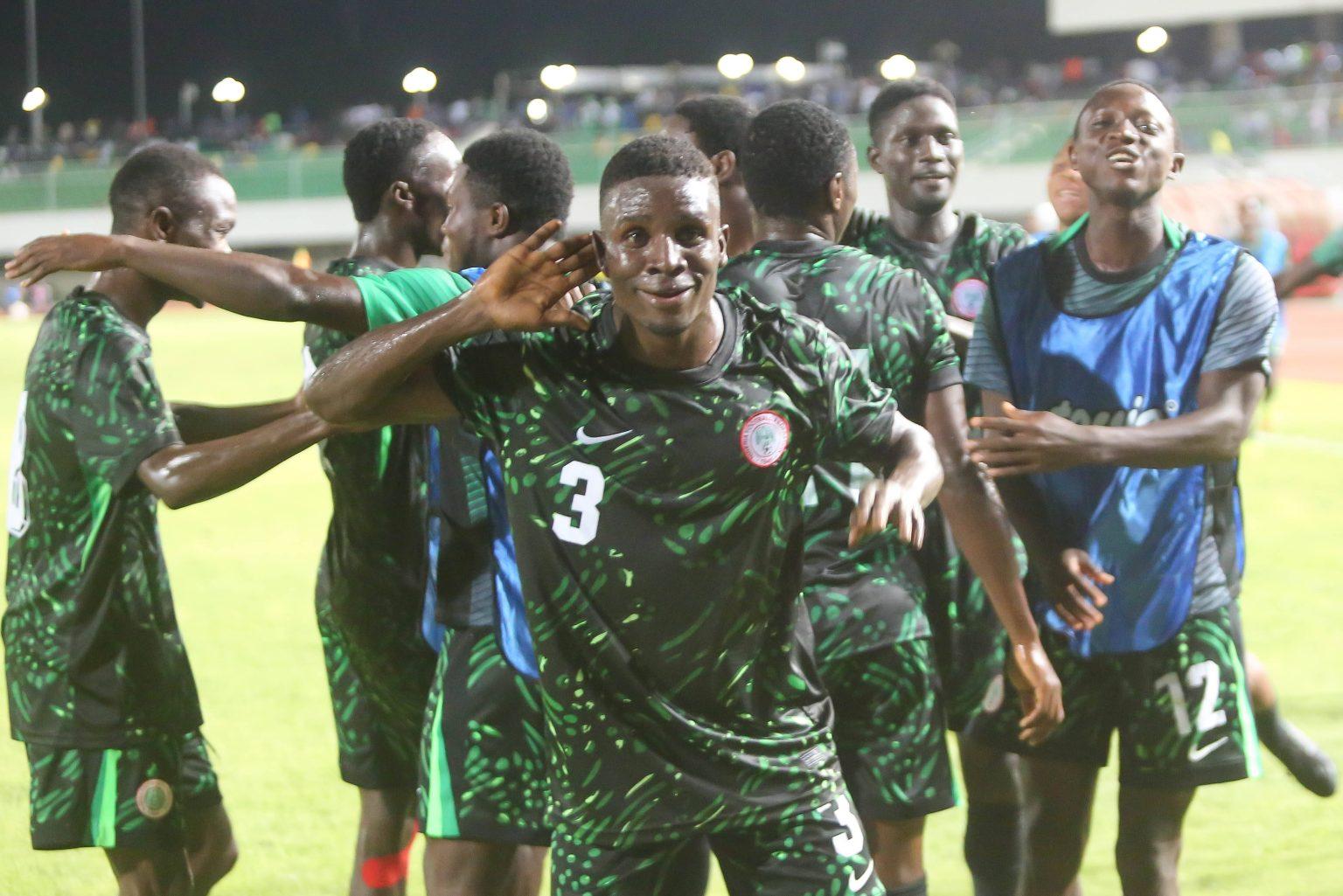
As Nigeria prepares to kick off their 2025 U20 Africa Cup of Nations (U20 AFCON) campaign against Tunisia on Thursday in Egypt, the Flying Eagles are once again under the spotlight. With a record seven titles, two silver medals, and four bronze, Nigeria’s pedigree in the U20 AFCON is unmatched, solidifying their reputation as the most successful youth side on the continent. Yet, when examining their performances in opening matches throughout the years, there has been a mix of triumphs and disappointments—offering both hope and caution ahead of their Group A curtain-raiser against Tunisia.

5. The Flying Eagles’ Dominance in the 1980s: An Era of U20 AFCON Unquestionable Excellence
Between 1981 and 1989, Nigeria’s Flying Eagles were a dominant force in the U20 AFCON, clinching four titles. During this era, the competition was decided by home-and-away knockout ties, a format that saw Nigeria consistently come out on top. Their victory in 1983, followed by a stunning win in 1985, solidified their position as the dominant youth footballing nation in Africa.
The 1989 edition in Morocco saw Nigeria complete a hat-trick of wins, further establishing the Flying Eagles as Africa’s best youth team. The late 1980s were undoubtedly a golden period for Nigeria’s U20 side, and the foundations for future success were laid during this time.
4. The Group-Stage Format: Nigeria’s Mixed Bag Since 1991
The introduction of the group-stage format in 1991, along with the host-country model, marked a turning point for the U20 AFCON. Nigeria’s first experience in this new structure came in 1993 when the Flying Eagles participated in the tournament held in Mauritius. Unfortunately, they failed to progress from the group stage after two defeats and a draw, including a narrow 1-0 loss to Cameroon in their opening match.
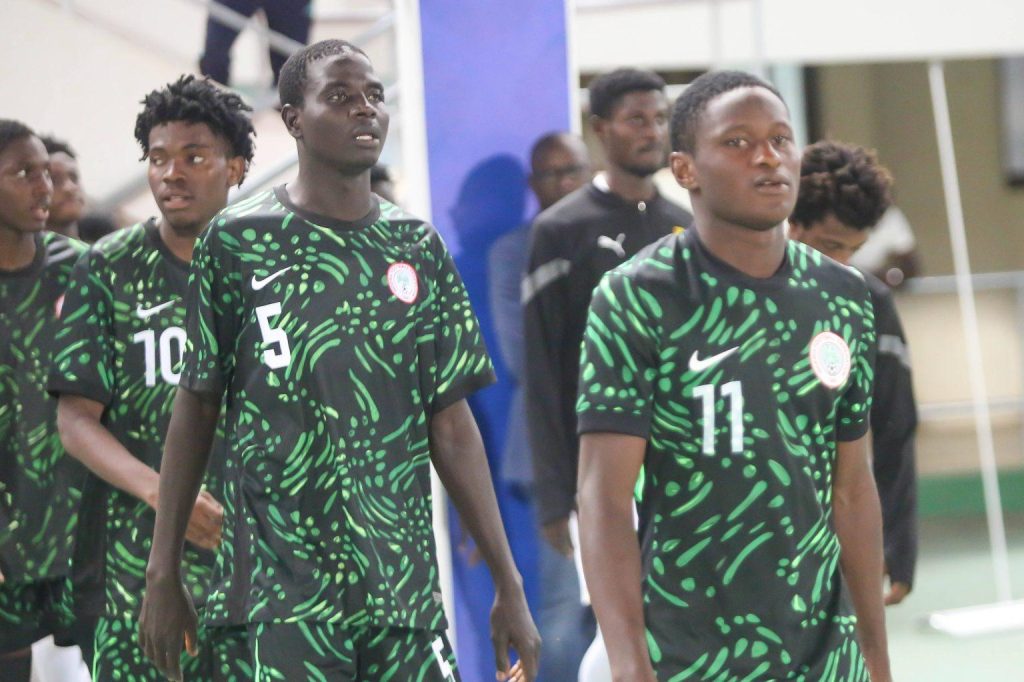
Despite this setback, the Flying Eagles would return stronger in subsequent years, but the 1993 campaign stands as a reminder of how unpredictable the competition can be, even for the most successful teams.
3. 1995 to 1999: Recovering from Setbacks to Claim Glory
Nigeria returned to the tournament in 1995, this time as the host nation, hoping to rebound from their disappointing exit in 1993. They opened the competition with a thrilling 3-3 draw against Mali, a result that would be followed by a third-place finish. Although they did not win the title, the Flying Eagles’ resolve was evident as they continued their search for glory.
In 1999, Nigeria finally secured their first group-stage win, edging Guinea 4-3 in a thrilling encounter. The victory was a significant moment for the team, signaling that the Flying Eagles were back on track and ready to challenge for top honors once again.
2. Triumphs and Setbacks: The 2000s and 2010s
The 2001 edition in Ethiopia marked a low point for Nigeria’s U20 team. After drawing 0-0 with Mali in their opening match, they failed to win another game, crashing out at the group stage. However, the Flying Eagles bounced back in 2005, when they triumphed in Benin Republic. The tournament started with a dominant 3-0 victory over the host nation, and Nigeria went on to lift the trophy, cementing their place in U20 AFCON history.
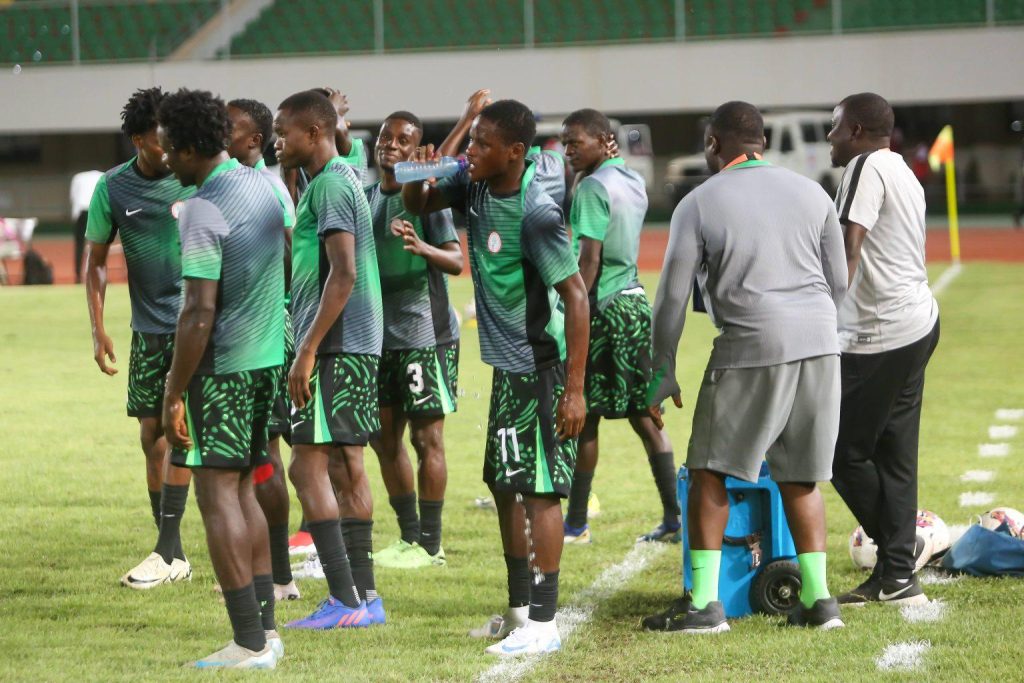
In 2007, Nigeria started strongly with a 4-2 victory over Zambia but fell short in the final, losing to Congo. Despite this defeat, the Flying Eagles’ performance showed that they were still a force to be reckoned with on the continental stage.
In 2009, Nigeria secured bronze after a 2-0 win over Egypt in Rwanda, and by 2011, they were back on top. Nigeria defeated Ghana 2-1 in their opening match of the tournament in South Africa, which set them on the path to victory and another U20 AFCON title.
1. Recent Challenges: Early Setbacks and Renewed Hope in 2025
The 2013 edition in Algeria saw Nigeria endure another early setback, as they lost their opening match 1-0 to Mali, ending a long run of strong starts. However, the Flying Eagles quickly recovered, defeating Senegal 3-1 in 2015, with Taiwo Awoniyi’s brace leading them to their seventh title. This victory was a testament to Nigeria’s resilience and their ability to bounce back from adversity.
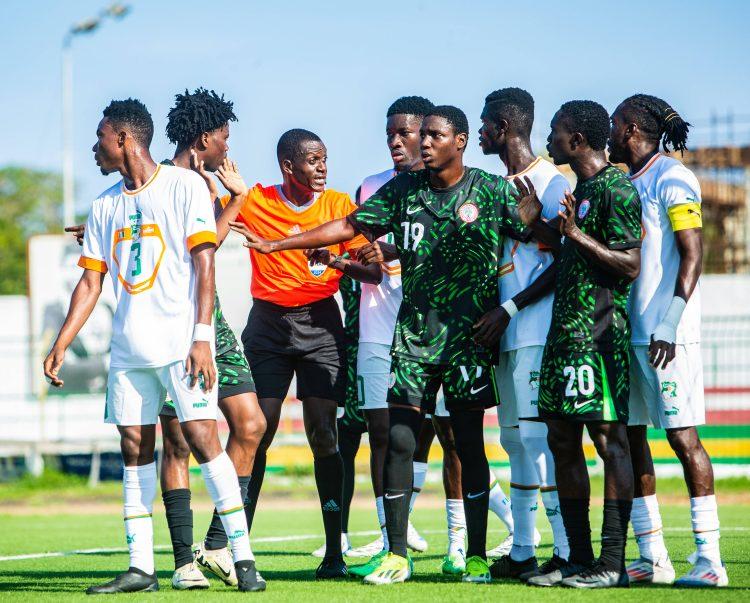
In 2019, Nigeria opened with a comfortable 2-0 win over Burundi in Niger, but in 2023, they were dealt a narrow 1-0 defeat by eventual champions Senegal. Over the last 13 opening U20 AFCON matches, Nigeria has managed seven wins, two draws, and four defeats. Their ability to recover from setbacks and turn the tide in subsequent matches has been a hallmark of their performances over the years.
SUGGESTED FOR YOU
Remo Stars Make History: Win First-Ever NPFL Title, Break 25-Year Record
Ademola Lookman: Reason Atlético Madrid Are the Least Likely to Land the Super Eagles Star
Looking ahead to 2025, the Flying Eagles face Tunisia in their opening match with the hopes of continuing this proud tradition of bouncing back from early setbacks. The clash against Tunisia is critical for setting the tone for their campaign, and a strong start will be essential for their ambitions of lifting an eighth title and asserting their dominance once again on the African stage.
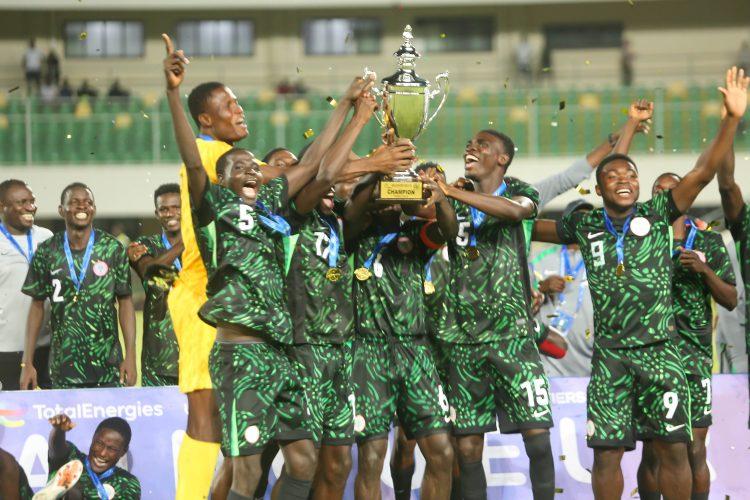
Conclusion:
As the 2025 U20 Africa Cup of Nations approaches, Nigeria’s Flying Eagles will be hoping to continue their proud legacy of success in this prestigious competition. With seven titles to their name, Nigeria remains the most decorated team in U20 AFCON history, but their opening match performances have been a mixed bag. Despite the challenges they’ve faced in previous tournaments, the Flying Eagles have always managed to bounce back and find success. As they prepare for their match against Tunisia, the Flying Eagles will be looking to write a new chapter, one that begins with a victory and culminates with another continental crown.


